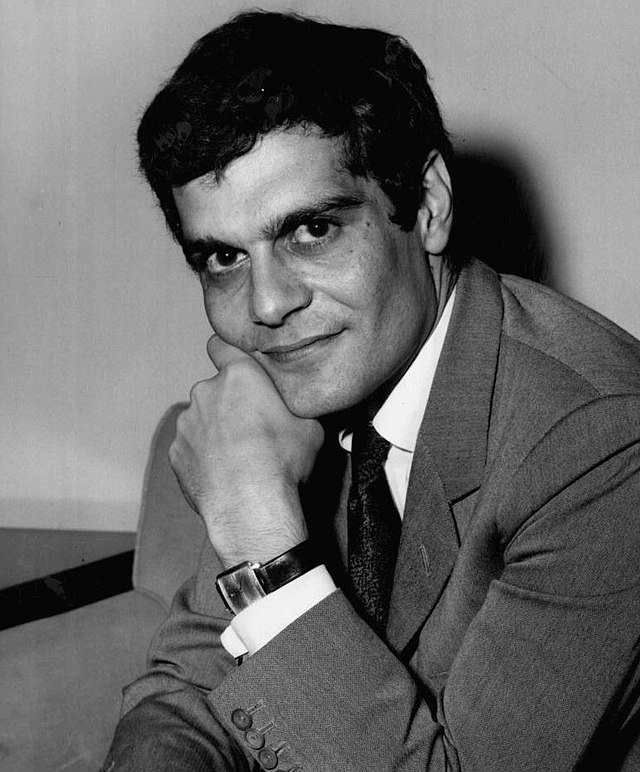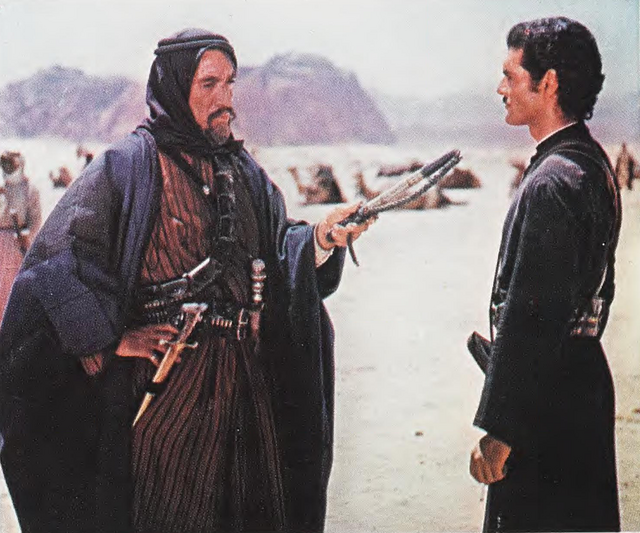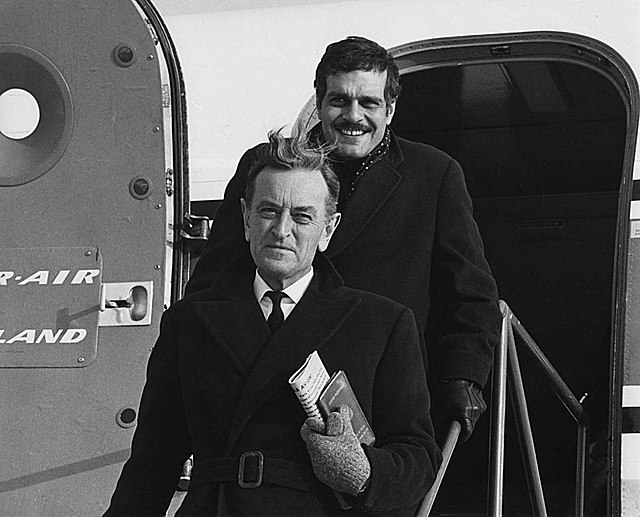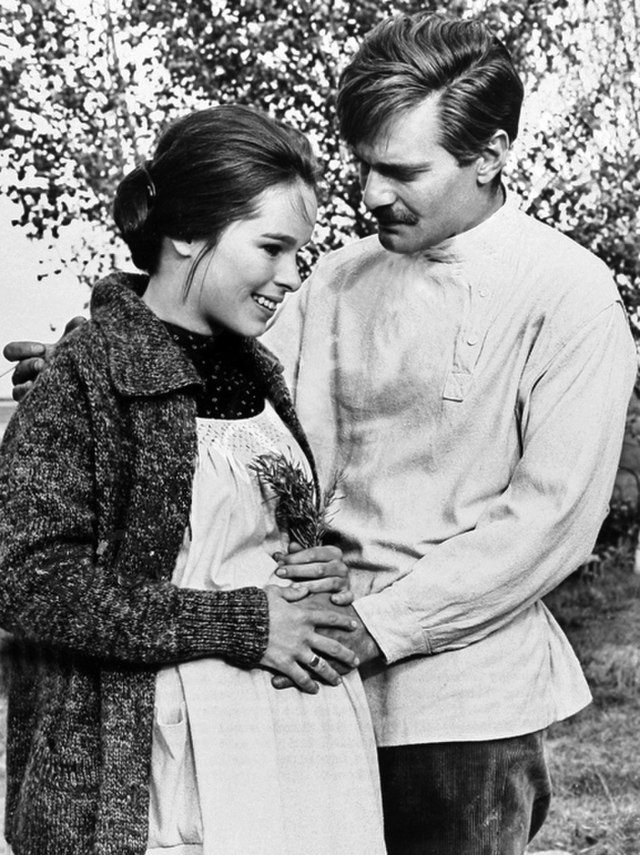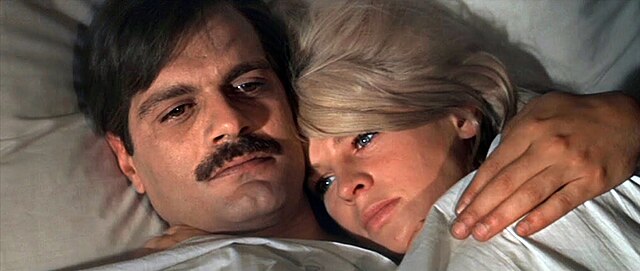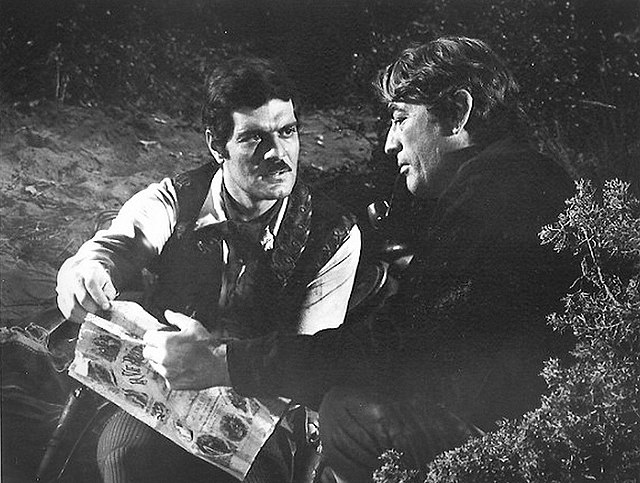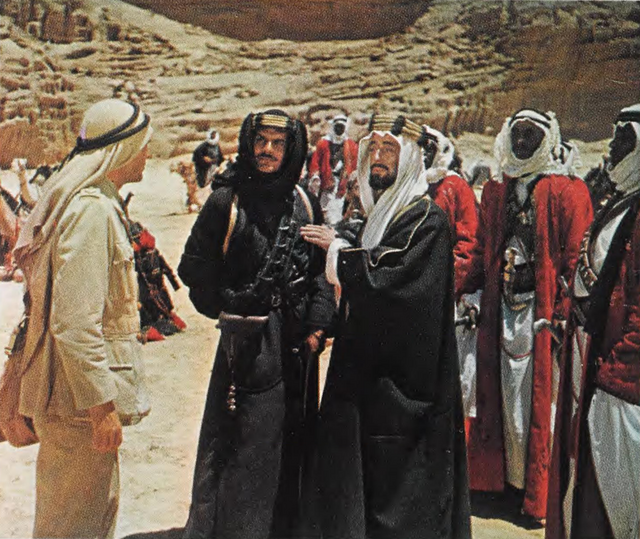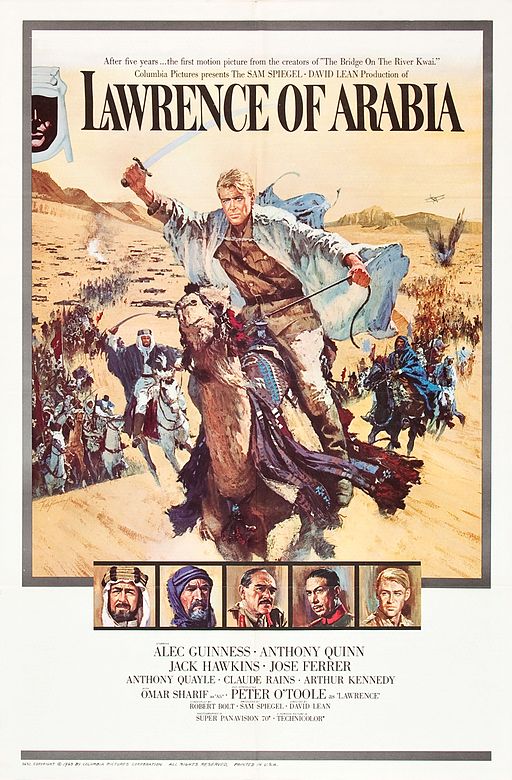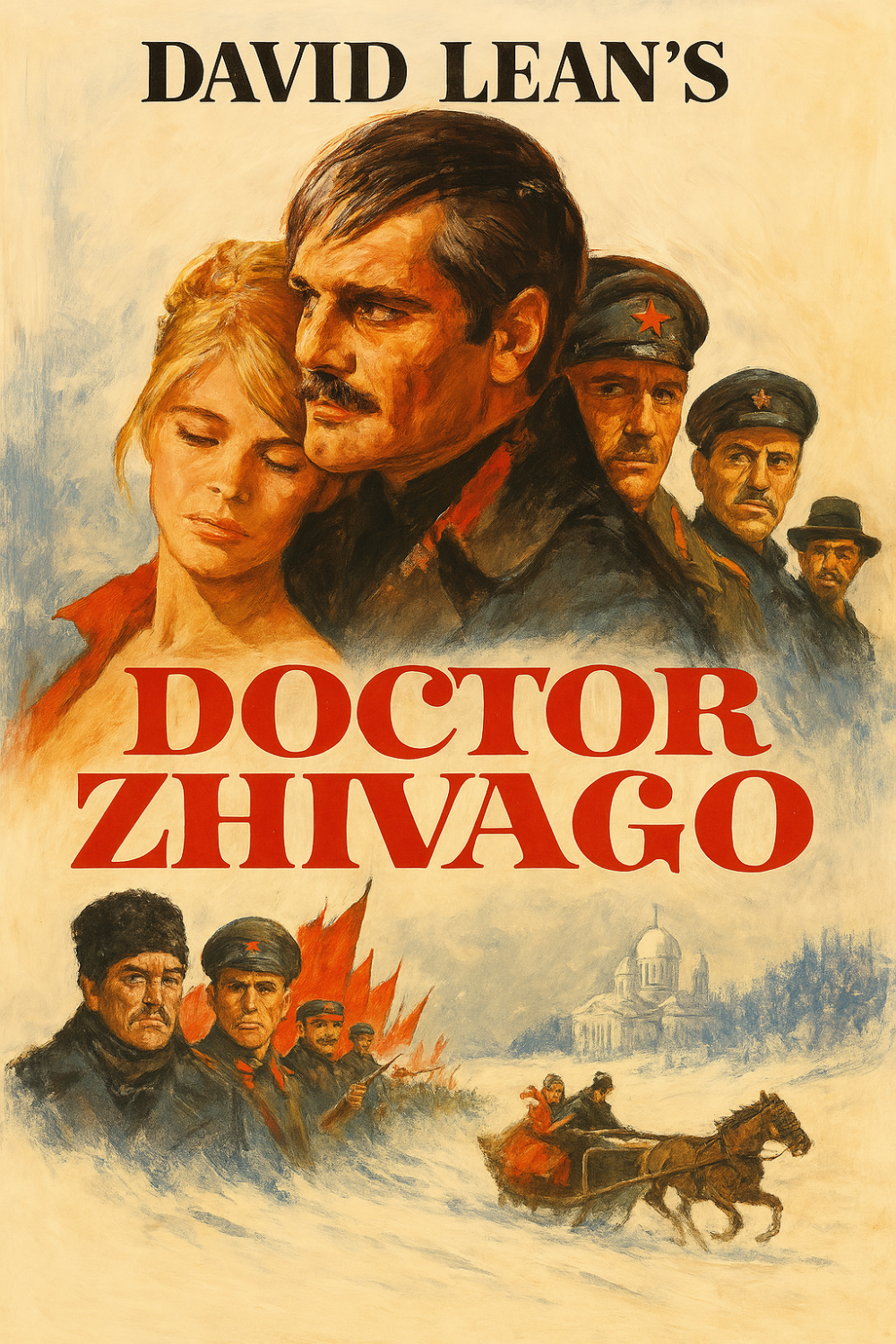Omar Sharif (1932 – 2015)
Biography and Movie Career
Omar Sharif, born Michel Demitri Shalhoub on April 10, 1932, in Alexandria, Egypt, was a cinematic legend whose charisma, exotic charm, and acting prowess propelled him from Egyptian cinema to international stardom. With a career spanning over six decades, he left an indelible mark on both Eastern and Western cinema, becoming a rare bridge between cultures and an icon of global film history.
________________________________________
Early Life and Background
Sharif was born into a wealthy and cosmopolitan Melkite Greek Catholic family of Lebanese descent. His father, Joseph Shalhoub, was a prosperous timber merchant, and his mother, Claire Saada, came from a family of affluent merchants and was known to host social gatherings attended by celebrities and aristocrats. Raised in privilege, young Michel attended Victoria College, a British-run elite school in Alexandria. There, he developed an early love for languages—he would eventually become fluent in Arabic, English, French, Italian, and Spanish.
From an early age, he showed signs of a dramatic flair, often performing in school plays. However, his early path was more academic than artistic. He initially studied mathematics and physics at Cairo University, later working briefly in his father's business. But the pull of performance was irresistible.
________________________________________
The Path Toward Stardom
Sharif’s acting career began in earnest in 1954 when he starred in the Egyptian film The Blazing Sun (Siraa Fil-Wadi), opposite the most famous actress of the time—Faten Hamama. Directed by Youssef Chahine, the film was a major success and a turning point in his life both professionally and personally. In order to marry Hamama, Sharif converted to Islam and changed his name from Michel Shalhoub to Omar Sharif. Their marriage was seen as a union of Egypt’s cinematic royalty.
Throughout the 1950s, Sharif became one of the leading men of Egyptian cinema, appearing in romantic dramas, thrillers, and historical epics that made him a household name in the Arab world.
His transition to international fame came in 1962, when British director David Lean cast him in the epic Lawrence of Arabia alongside Peter O'Toole. Sharif’s portrayal of Sherif Ali, the fierce but noble desert warrior, earned him an Academy Award nomination for Best Supporting Actor and won him a Golden Globe Award. His dramatic entrance on a camel, emerging from a desert mirage, became one of cinema’s most iconic scenes.
Just three years later, Lean cast Sharif in the title role of Doctor Zhivago (1965), based on Boris Pasternak’s novel. His sensitive portrayal of the tormented Russian poet and physician Yuri Zhivago solidified his global fame. The film was a massive hit, earning five Academy Awards, and Sharif received another Golden Globe for his performance.
He continued to star in major Hollywood and European productions throughout the 1960s and 1970s, including Funny Girl (1968) opposite Barbra Streisand, The Night of the Generals (1967), Mackenna's Gold (1969), and The Tamarind Seed (1974).
________________________________________
Personal Life and Relationships
Sharif’s marriage to Faten Hamama was deeply romantic but ultimately strained by his frequent travels and long stays abroad due to his international film career. They divorced in 1974 after nearly two decades of marriage, though Sharif never remarried and often referred to her as the only woman he truly loved. Together, they had one son, Tarek Sharif, born in 1957, who briefly appeared as the young Yuri in Doctor Zhivago.
Sharif lived much of his life between Cairo, Paris, and hotel rooms around the world. Though widely regarded as a charming and elegant man, his cosmopolitan lifestyle often left him adrift. He once said he preferred hotel rooms because they “felt like neutral ground.”
________________________________________
Passions Beyond the Screen
Apart from acting, Omar Sharif had two great passions: bridge and horse racing. At one point, he was ranked among the world’s top contract bridge players. He co-wrote books on the game and even had his own syndicated bridge column, “Omar Sharif on Bridge,” which ran for many years in international newspapers.
Bridge, however, also became something of an obsession. He admitted in later years that his dedication to the game likely damaged his film career, as he turned down roles to participate in bridge tournaments.
He was also passionate about horse racing, frequently attending major races around Europe and the Middle East.
________________________________________
Later Years and Final Performances
In the 1990s and early 2000s, Sharif took fewer major film roles, often appearing in European and independent films. A highlight of his later career was Monsieur Ibrahim (2003), a touching French film in which he played a kind, wise Muslim shopkeeper who befriends a Jewish boy in 1960s Paris. The role won him France’s César Award for Best Actor and introduced him to a new generation of filmgoers.
Sharif gradually withdrew from public life in the early 2010s. In 2015, his son Tarek revealed that he had been diagnosed with Alzheimer’s disease, which had severely affected his memory and ability to recognize even his most famous films.
________________________________________
Death and Legacy
Omar Sharif died of a heart attack on July 10, 2015, in Cairo, Egypt, at the age of 83. He was buried in El-Sayeda Nafisa Cemetery, a revered site in southern Cairo.
His death came just months after the passing of his former wife and lifelong love, Faten Hamama.
Omar Sharif is remembered not only for his magnetic screen presence and unforgettable performances but also as a man who navigated fame across cultures and continents. With elegance, mystery, and talent, he became a cinematic ambassador between East and West.
His life remains a story of talent, romance, glamour, and quiet sadness—a true legend of world cinema.
Physical Measurements & Features
• Height:
Approximately 5 feet 11 inches (180 cm)
• Build:
Slim to medium build, athletic in his youth, especially in roles like Lawrence of Arabia and The Horsemen
• Hair:
Naturally black, later turned silver-gray with age; always impeccably styled
• Eyes:
Hazel – often highlighted as one of his most expressive features
• Skin Tone:
Light olive complexion, typical of Levantine heritage
Facial Features:
• Strong jawline
• Prominent nose
• Deep-set, emotive eyes
• Often sported a trim mustache (a signature look in many films)
Omar Sharif with Jay Leno
Romance between Omar Sharif and Barbra Streisand
Their Collaboration: Funny Girl (1968)
• They starred opposite each other in Funny Girl, with Streisand as Fanny Brice, a rising vaudeville star, and Sharif as Nicky Arnstein, her suave, elusive gambler husband.
• The film was a critical and commercial success. Streisand won an Academy Award for Best Actress, and Sharif’s performance was widely praised for its charm and emotional nuance.
• Their on-screen chemistry was undeniable—smoldering, sophisticated, and layered with real tenderness.
________________________________________
Off-Screen Connection and Controversy
• During filming, rumors swirled about a real-life romance between Streisand and Sharif. Both were single at the time, and neither confirmed a serious relationship, but their close bond was evident.
• Their pairing caused an uproar in parts of the Arab world:
o Sharif, an Egyptian Muslim, was cast opposite Streisand, a proud Jewish American and vocal supporter of Israel.
o At the time (just after the 1967 Arab-Israeli war), the relationship ignited political and media backlash, especially in Egypt.
o Egyptian officials pressured the studio to recast Sharif, but Columbia Pictures refused.
o Sharif famously responded:
"I told them I’d be kissing Barbra Streisand, not the Prime Minister of Israel."
________________________________________
Professional Respect and Lasting Impression
• Streisand spoke fondly of Sharif in later years, calling him:
“Elegant, refined, and romantic. He brought magic to the screen.”
• Despite the political controversy, the two remained friendly, and Sharif often praised Streisand’s talent and beauty.
• They reunited for the sequel, Funny Lady (1975), continuing their characters’ complicated love story, though the film wasn’t as warmly received as the original.
Omar Sharif's Acting Style
Omar Sharif's acting style was marked by an elegant restraint, a kind of understated magnetism that allowed him to inhabit roles with a calm authority, emotional depth, and cross-cultural appeal. He possessed a rare quality: he could command the screen without appearing to try too hard—a gift that made him both a romantic icon and a versatile dramatic actor.
________________________________________
Quiet Charisma and Controlled Emotion
Sharif's performances often radiated a kind of quiet intensity. He rarely played to the camera with overt gestures or melodramatic outbursts; instead, he channeled emotion through his eyes, voice, and posture. His gaze could be warm, haunted, or piercing, depending on the scene—and he used silence as skillfully as dialogue.
This controlled emotional delivery was especially evident in roles like Doctor Zhivago, where he portrayed a man torn by love and loyalty. He conveyed the inner life of his characters without needing to explain them—a quality often associated with actors of great subtlety.
________________________________________
Grace and Physical Elegance
There was a natural grace to Sharif’s physicality, whether he was riding a horse across the desert in Lawrence of Arabia, dancing in Funny Girl, or merely walking across a room in a tailored suit. His movement was always poised—never stiff, never over-rehearsed. Directors often relied on this physical elegance to emphasize his characters' nobility, mystery, or romantic allure.
________________________________________
Voice and Multilingual Fluidity
Sharif had a rich, resonant voice, smooth and deliberate, which lent gravitas to his dialogue delivery. He was also multilingual, speaking fluent English, Arabic, French, and several other languages, and could adapt his accent to fit the character. This linguistic flexibility gave him an international versatility that few actors of his era possessed.
________________________________________
Cultural Duality and Ambiguity
Sharif had the unique ability to play both Eastern and Western roles with authenticity. His Arab heritage and European education allowed him to move easily between vastly different cultural contexts, which gave many of his characters a layer of enigmatic duality.
He could be a tribal chieftain (Lawrence of Arabia), a Russian poet (Doctor Zhivago), a Jewish gambler (Funny Girl), or a Turkish grocer (Monsieur Ibrahim), and audiences accepted him in each role without hesitation. This cultural ambiguity made him both “everyman” and “exotic,” depending on what the role required.
________________________________________
Romantic Sensibility Without Sentimentality
As a romantic lead, Sharif was never cloying or overly sentimental. He brought tenderness wrapped in dignity, often playing men who were introspective, intelligent, and emotionally wounded. His characters loved deeply, but never desperately. Even in emotionally charged moments, he maintained a composure that added authenticity to romance without veering into theatrical excess.
________________________________________
A Talent for Stillness
In an era of larger-than-life acting, Sharif had the rare ability to make stillness riveting. He didn’t need to fill scenes with movement or volume; he allowed the camera to come to him. This economy of gesture made even his smallest reactions feel meaningful—an eyebrow lift, a slow turn, or a breath before answering could hold as much weight as a full monologue.
________________________________________
Legacy of Subtle Power
Omar Sharif’s acting was the kind that crept up on you. He didn’t demand your attention—he invited it, drawing audiences in with subtle signals and leaving a lasting impression long after the scene was over.
His style stands in contrast to many of today’s more demonstrative performances. It was anchored in restraint, dignity, and emotional truth, with just enough mystery to keep viewers leaning forward, wondering what he was thinking beneath that calm, intelligent surface.
Major Film Awards
Academy Awards (Oscars)
• 1963: Nominated for Best Supporting Actor for Lawrence of Arabia
Golden Globe Awards
• 1963: Best Supporting Actor – Motion Picture for Lawrence of Arabia
• 1963: New Star of the Year – Actor for Lawrence of Arabia
• 1966: Best Actor – Motion Picture Drama for Doctor Zhivago
César Awards (France)
• 2004: Best Actor (Meilleur acteur) for Monsieur Ibrahim
Venice Film Festival
• 2003: Audience Award for Best Actor for Monsieur Ibrahim
________________________________________
Honorary and Lifetime Awards
UNESCO Picasso Medal
• Awarded for contributions to arts and intercultural dialogue.
Venice Film Festival – Career Golden Lion
• While he did not officially receive a Lion, he was repeatedly honored and invited for his contributions to cinema, especially around Monsieur Ibrahim’s release.
Cairo International Film Festival
• Honored multiple times for lifetime achievements and his pivotal role in placing Arab cinema on the world map.
Academy of Motion Picture Arts and Sciences (AMPAS)
• In 2005, Sharif was formally honored for his career and international influence.
________________________________________
French Recognition
Legion of Honour (Légion d'honneur) – France
• Knighted (Chevalier): 2003
o One of France’s highest civil honors, awarded for his contributions to the arts.
________________________________________
Other Awards and Honors
Gijón International Film Festival (Spain)
• Best Actor for Monsieur Ibrahim
Russian Academy Nika Award
• Nominated for The First Circle (1992), a miniseries based on Aleksandr Solzhenitsyn’s novel.
Dubai International Film Festival
• Received the Lifetime Achievement Award in 2009.
Golden Camera Award (Germany)
• For lifetime achievement and contribution to international cinema.
________________________________________
Notable Cultural and Popular Recognition
• Featured on TIME Magazine covers following Lawrence of Arabia and Doctor Zhivago
• Recognized by the American Film Institute and British Film Institute in retrospectives of great epic films
• Honored posthumously in film festivals around the world (Venice, Cairo, Cannes retrospectives)
Personal Quotes
On Acting and Cinema
"I don’t know how to act. I react."
"Acting is my profession; bridge is my passion."
"I lived a very humdrum life until I was offered the part in Lawrence of Arabia."
________________________________________
On Identity and Cultural Belonging
"I am Egyptian. I am proud to be an Arab."
"I had to give up my name, my religion, and my country to become a movie star."
________________________________________
On Love and Relationships
"I never fell in love with any woman I worked with… except my wife."
"I was not faithful to my wife. That was the main reason for the divorce. I don’t think she could take it."
________________________________________
On Bridge and Obsession
"I’d rather be playing bridge than making a bad movie."
"Bridge is such a sensational game that I wish I had taken it up earlier."
________________________________________
On Life and Reflection
"I would rather be remembered as a good person than a good actor."
"Love is existence, but not possession."
What Others said about Omar Sharif
Actors and Filmmakers
Peter O'Toole (co-star in Lawrence of Arabia)
“He was the most gallant of men, full of life, laughter, and a true friend.”
Sharif and O'Toole had great on-screen chemistry and remained close friends for decades.
Barbra Streisand (co-star in Funny Girl)
"Omar was elegant, charming, and had a voice like warm honey. He made every moment on set memorable.”
Despite controversy surrounding their on-screen romance during tense political times, Streisand always spoke highly of his professionalism and kindness.
David Lean (director of Lawrence of Arabia and Doctor Zhivago)
“There is a sensitivity in Omar’s eyes that the camera adores. He doesn’t have to speak to be understood.”
Lean was instrumental in Sharif’s international breakthrough and deeply admired his screen presence.
________________________________________
Cultural Figures and Critics
Tarek Sharif (his son)
“He was a great father, despite being away often. What many people didn’t see was how funny and gentle he was at home.”
Tarek occasionally spoke about his father’s private side—reserved, affectionate, and more humble than many realized.
Egyptian Public Figures and Media
“He brought dignity to Arab cinema. He was our ambassador to the world of art.”
Sharif was considered a national treasure in Egypt, and his global success was a source of pride for generations.
Roger Ebert (Film Critic)
"Sharif had an old-world quality that gave depth to even his simplest roles. He could play nobility, rebellion, romance, or sorrow—and always with style.”
________________________________________
Tributes After His Death (2015)
• UNESCO: Called him a “bridge between East and West, cinema and culture.”
• Cairo International Film Festival: Held a tribute screening of Monsieur Ibrahim, praising him as “a symbol of tolerance, culture, and Arab pride.”
• French President François Hollande: Issued a statement honoring Sharif’s “great contribution to international cinema and French culture.”
Omar Sharif Movies
1954
• "The Devil of the Desert" (Shaytan al-Sahra): Omar Sharif's debut film, where he plays Essam, a character entangled in desert conflicts.
• "The Blazing Sun" (Sira' Fi al-Wadi): Sharif portrays Ahmed, a young man seeking justice against a corrupt landowner in rural Egypt.
1955
• "Our Beautiful Days" (Ayyamna al-Holwa): A romantic drama featuring Sharif as a lead character navigating love and societal expectations.
1956
• "Struggle in the Pier" (Siraa Fil-Mina): Sharif plays Ragab, a worker involved in labor disputes and personal challenges at the Alexandria port.
• "The Lebanese Mission" (La Châtelaine du Liban): In this French film, Sharif portrays Mokrir, entangled in espionage and romance in Lebanon.
1957
• "Sleepless" (La Anam): Sharif's character, Aziz, becomes involved in a complex tale of betrayal and psychological turmoil.
• "Land of Peace" (Ard al-Salam): Set during the Palestinian-Israeli conflict, Sharif plays Ahmed, striving for peace amidst turmoil.
1958
• "Goha": Sharif stars as Goha, a naive yet wise man whose adventures explore human nature and societal norms.
• "Struggle on the Nile" (Siraa fil Nil): Sharif portrays Muhassab, navigating challenges and rivalries along the Nile River.
• "Lady of the Palace" (Sayyidat al-Qasr): A romantic drama featuring Sharif as Adel, entangled in love and class struggles.
1960
• "A Rumor of Love" (Esha'a Hob): Sharif plays Hussein, involved in comedic misunderstandings and romantic pursuits.
• "The River of Love" (Nahr al-Hob): An adaptation of "Anna Karenina," with Sharif as Khalid, depicting a tragic love story.
1961
• "There Is a Man in Our House" (Fi Baytuna Rajul): Sharif portrays Ibrahim, a nationalist revolutionary seeking refuge, leading to intense drama.
1962
• "Lawrence of Arabia": Sharif's international breakthrough as Sherif Ali, a tribal leader aiding T.E. Lawrence during World War I.
1964
• "The Fall of the Roman Empire": Sharif plays Sohamus, involved in political intrigues during Rome's decline.
• "Behold a Pale Horse": Sharif portrays Francisco, a priest entangled in post-civil war Spanish conflicts.
• "The Yellow Rolls-Royce": In this anthology film, Sharif appears as Davich, a Yugoslav patriot during World War II.
1965
• "Genghis Khan": Sharif stars as Temujin, depicting the rise of the Mongol conqueror Genghis Khan.
• "Doctor Zhivago": Sharif's iconic role as Yuri Zhivago, a physician-poet caught in the turmoil of the Russian Revolution.
1967
• "The Night of the Generals": Sharif plays Major Grau, investigating a series of murders involving high-ranking Nazi officers.
• "More Than a Miracle": A fairy tale romance with Sharif as Prince Rodrigo, embarking on a quest to find a suitable bride.
1968
• "Funny Girl": Sharif portrays Nicky Arnstein, the charming gambler and love interest of entertainer Fanny Brice.
• "Mayerling": Sharif stars as Crown Prince Rudolf of Austria, depicting his tragic romance and demise.
1969
• "Mackenna's Gold": Sharif plays Colorado, a bandit seeking hidden treasure in the American West.
• "The Appointment": A drama featuring Sharif as Federico Fendi, a man consumed by jealousy over his wife's suspected infidelity.
• "Che!": Sharif portrays revolutionary Che Guevara, chronicling his role in the Cuban Revolution.
1971
• "The Last Valley": Sharif plays Vogel, a teacher seeking refuge in a peaceful valley during the Thirty Years' War.
• "The Horsemen": Set in Afghanistan, Sharif portrays Uraz, a horseman facing personal and physical challenges.
• "The Burglars": A French crime thriller featuring Sharif as Abel Zacharia, involved in a high-stakes jewel heist.
1974
• "Juggernaut": Sharif plays Captain Brunel, commanding a luxury liner targeted by a bomber.
• "The Tamarind Seed": A romantic thriller with Sharif as Feodor Sverdlov, a Soviet attaché entangled in Cold War espionage.
1975
• "Funny Lady": Sharif reprises his role as Nicky Arnstein, continuing the story of Fanny Brice's tumultuous career and love life.
1976
• "Crime and Passion": Sharif portrays Andre Ferren, involved in a suspenseful tale of love and deceit.
• "The Pink Panther Strikes Again": A cameo appearance by Sharif as an Egyptian assassin in this comedic caper.
1979
• "Bloodline": Sharif plays Ivo Palazzi, a sophisticated and enigmatic character entangled in a web of family intrigue and corporate espionage within a powerful pharmaceutical dynasty.
• "S-H-E": In this spy thriller, Sharif portrays Baron Cesare Magnasco, a charming yet dangerous antagonist involved in a plot that threatens global security.
1980
• "The Baltimore Bullet": Sharif takes on the role of The Deacon, a seasoned and cunning pool hustler who becomes both mentor and rival to a younger player aiming to make a name in the competitive world of billiards.
• "Oh Heavenly Dog": In this comedic mystery, Sharif appears as Malcolm Bart, a suave and mysterious art dealer entangled in a plot involving reincarnation and a private investigator who returns to life as a dog.
1981
• "Green Ice": Sharif plays Meno Argenti, a charismatic and dangerous figure involved in a high-stakes emerald smuggling operation that draws an unsuspecting protagonist into a perilous adventure.
• "Inchon": In this war epic, Sharif makes a cameo appearance as an Indian officer, contributing to the depiction of the diverse forces involved in the pivotal Battle of Inchon during the Korean War.
1983
• "Ayoub": Sharif stars as Abdelhamid El-Sokkary, a man confronting personal and societal challenges in a narrative that delves into themes of resilience and redemption within a changing Egyptian society.
1984
• "Top Secret!": In this satirical comedy, Sharif plays Agent Cedric, a hapless and comedic secret agent whose misadventures contribute to the film's parody of espionage and war films.
1987
• "Grand Larceny": Sharif portrays Rashid Saud, a wealthy and enigmatic figure whose involvement in a complex plot of deception and theft unfolds in this suspenseful drama.
1988
• "The Possessed": In this adaptation of Dostoevsky's novel, Sharif embodies Stepan Verkhovensky, a character embroiled in philosophical and political turmoil within a narrative exploring radicalism and moral conflict.
• "The Puppeteer" (Al-Aragoz): Sharif plays Mohamed Gad El Kareem, a traditional puppeteer whose art and personal life reflect the cultural and social changes occurring in contemporary Egypt.
1990
• "Mountains of the Moon": Sharif appears as a Sultan, contributing to the historical drama that chronicles the expeditions of explorers Richard Burton and John Speke in their quest to find the source of the Nile River.
• "The Rainbow Thief": In this fantasy drama, Sharif portrays Dima, a character navigating a surreal and whimsical world, exploring themes of friendship, greed, and the search for meaning.
1991
• "Mayrig": Sharif plays Hagop, depicting the struggles and resilience of an Armenian family that emigrates to France, highlighting themes of cultural identity and adaptation.
• "Beyond Justice": Sharif appears as Emir Beni-Zair, a powerful tribal leader involved in a complex narrative of kidnapping and international intrigue set against a Middle Eastern backdrop.
1992
• "588 Rue Paradis": Continuing his role as Hagop, Sharif explores the ongoing challenges and triumphs of the Armenian immigrant family in France, delving deeper into themes of heritage and assimilation.
• "Mrs. 'Arris Goes to Paris": In this charming tale, Sharif portrays Marquis Hippolite, a refined and aristocratic figure who becomes part of a London charwoman's whimsical journey to acquire a couture dress in Paris.
1999
• "The 13th Warrior": Sharif plays Melchisidek, a knowledgeable and wise character who aids a group of Norse warriors and an exiled Arab ambassador in their battle against mysterious and deadly adversaries.
2003
• "Monsieur Ibrahim": In this poignant drama, Sharif stars as Monsieur Ibrahim, a Turkish shopkeeper who forms a deep and transformative friendship with a young Jewish boy in 1960s Paris, exploring themes of cross-cultural understanding and personal growth.
2004
• "Hidalgo": Sharif portrays Sheikh Riyadh, a noble and influential leader who invites an American cowboy to participate in a grueling long-distance horse race across the Arabian Desert, testing endurance and cultural boundaries.
2008
• "10,000 BC": Serving as the film's narrator, Sharif guides viewers through this prehistoric epic, chronicling the journey of a young hunter as he embarks on a quest to secure the future of his tribe.
2009
• "The Traveller" (Al Mosafer): Sharif plays Hassan, depicting three pivotal days in the life of a man across different decades, exploring themes of fate, love, and the passage of time within the context of Egyptian society.
2013
• "Rock the Casbah": In this family drama, Sharif portrays Moulay Hassan, the patriarch whose death brings his family together, leading to revelations and confrontations that explore familial bonds and personal secrets.
2015
• "1001 Inventions and the World of Ibn Al-Haytham": In his final film role, Sharif plays the Grandfather, introducing audiences to the life and contributions of the pioneering scientist Ibn al-Haytham, emphasizing the importance of curiosity and knowledge.

